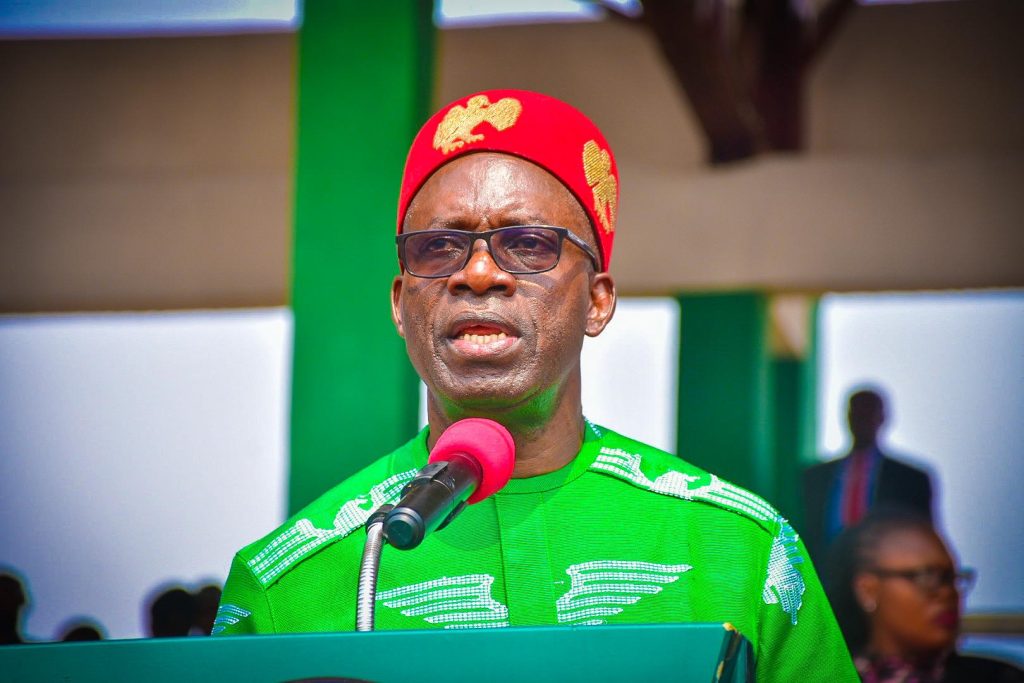
National unity is a constant refrain in Nigeria, where ethnic divisions and sectional interests often dominate common political discourse. Yet, Governor Chukwuma Charles Soludo, CFR, of Anambra State continues to garner accolades as an exemplar for true national integration. His actions since becoming Governor of Anambra State, particularly in political and civil service appointments, demonstrate a refreshing departure from the parochial politics that has plagued our nation for far too long.
As highlighted by veteran journalist and university don, Tunde Olusunle, in his insightful analysis, revisited Governor Soludo’s appointment of Joachim Achor from Abia State and Adebayo Ojeyinka from Osun State as Permanent Secretaries in Anambra’s Civil Service speaks volumes about his commitment to merit-based leadership. These appointments were not mere tokenism; they emerged from a rigorous selection process that included computer-based examinations, thorough security verification, and personal interviews with the governor himself.
Governor Soludo’s merit-based approach represents more than just administrative decisions; it embodies a philosophical shift in governance.
Just recently, too, the governor appointed Mr Chris Molokwu, who hails from Delta State as MD of the State-owned Anambra Broadcasting Service (ABS). This is aside several other appointments of individuals who are actually not from Anambra State, this writer inclusive.
By looking beyond state boundaries and ethnic considerations, he demonstrates that competence and merit should be the primary criteria for public service. This approach aligns perfectly with global best practices, where talent and capability trump geographical origins.
The governor’s actions remind us of an essential truth: Nigeria’s strength lies in its diversity. When we tap into our vast pool of human resources without prejudice to ethnic or religious backgrounds, we position ourselves for exponential growth and development. This is particularly relevant in today’s global context, where Nigerian talents are making remarkable strides internationally, as evidenced by the recent recognition of six Nigerian professionals by the U.S. President for their exceptional contributions to science and engineering.
What makes Governor Soludo’s leadership style particularly noteworthy is its timing. In a period when some political leaders still cling to divisive rhetoric and ethnic considerations, his inclusive governance model offers a practical template for national integration. His administration proves that state boundaries need not be barriers to talent acquisition and deployment in public service.
The ripple effects of such leadership extend far beyond Anambra State. By creating an environment where competence is valued over connections, where merit trumps mediocrity, Governor Soludo is setting a precedent that is worthy of emulation. His actions demonstrate that true federalism is not just about resource control or political autonomy; it is about creating systems that allow the best talents to serve wherever their skills are needed most.
While Nigeria continues to grapple with the challenges of unity and national integration, leaders like Governor Soludo have continued to show us that these challenges are not insurmountable. Through deliberate policies and actions that promote inclusion and merit, we can build a nation where every qualified citizen has an opportunity to serve and contribute to national development, regardless of their state of origin.
Let the message continue to resonate in our ears: Nigeria’s path to greatness lies not in ethnic considerations or geographical divisions but in our ability to harness the diverse talents and capabilities of all our citizens Governor Soludo’s exemplary leadership in Anambra State serves as a practical demonstration of how this can be achieved. It is a model that deserves not just recognition but replication across the nation. Looking ahead, one can only hope that more Nigerian leaders will embrace this progressive approach to governance. For in doing so, we move closer to realizing the dream of a truly united and prosperous Nigeria, where merit and competence are the primary currencies of public service.
By Christian ABURIME






